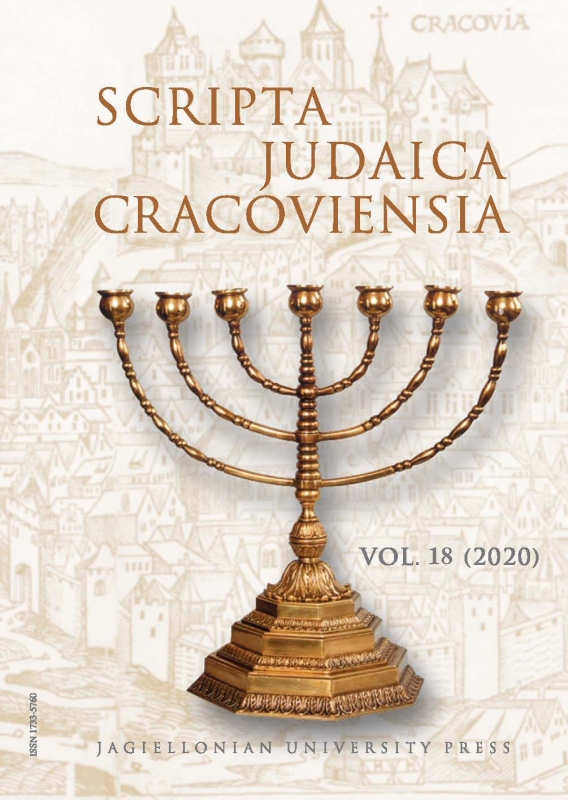Between Institutional Antisemitism and Authoritarianism in the Territory of the Former Galicia, 1935–1939: Discussion of the Problem
Between Institutional Antisemitism and Authoritarianism in the Territory of the Former Galicia, 1935–1939: Discussion of the Problem
Author(s): Tony Kahane, Andrew ZalewskiSubject(s): Jewish studies
Published by: Wydawnictwo Uniwersytetu Jagiellońskiego
Keywords: Jews; antisemitism; 1935–1939
Summary/Abstract: In the period 1935–1939, following the death of head of state Marshal Piłsudski, the Polish national government adopted a more authoritarian and nationalist stance. Piłsudski had been considered by some Polish Jews as a protector of national and religious minorities. After his death in May 1935, institutional antisemitism experienced a dramatic increase.In the public sphere, certain newspapers regularly featured antisemitic “news reports,” opinion pieces and cartoons of an extreme nature. The newspaper ABC, for instance, advocated boycotts of Jewish businesses and shops, listing them by name, and encouraged Jewish emigration.In universities, the increasing discrimination against Jews has been well documented. Most Polish universities instituted restrictions on the number of Jewish students they would admit, or else barred them altogether. The education ministry willingly turned a blind eye to the admission policies of the university authorities. At the beginning of the academic year 1938–1939, for example, only three students in the first year of medical studies in Lwów (less than 1% of the new intake) were Jews, and none in Kraków.After discussing antisemitism in newspapers and universities in the late 1930s, this article will examine documents held in the State Archive of Ivano-Frankivsk Oblast (DAIFO) concerning relations between the Jewish communities in the Stanisławów region, and the district, provincial and national authorities, including the national Ministry for Religious Denominations and Public Enlightenment. Much of this documentation concerns the town of Dolina. With the backing of the district authorities, an attempt was made to install as assistant rabbi in the town a certain Ksyel Juda Halberstam. This move was strongly opposed by many members of the Dolina Jewish community, as well as by its senior rabbi. The correspondence sheds light on the protracted struggle between the different parties until the assistant rabbi was finally installed in late 1938.These files on the Dolina episode highlight the desire on the part of the authorities to control the rabbis, and through them the members of their communities. Information was systematically gathered on all the rabbis in the province, with particular emphasis on their moral behaviour, their perceived loyalty to the state, and their fluency in the Polish language. These actions, in turn, reflect an underlying suspicion over the extent of the rabbis’ “Polishness” and a fear, in an era of growing nationalism, of “antinational” behaviour. Such suspicions of loyalty were particularly marked where rabbis were thought to have Zionist links.
Journal: Scripta Judaica Cracoviensia
- Issue Year: 2020
- Issue No: 18
- Page Range: 97-104
- Page Count: 8
- Language: English

